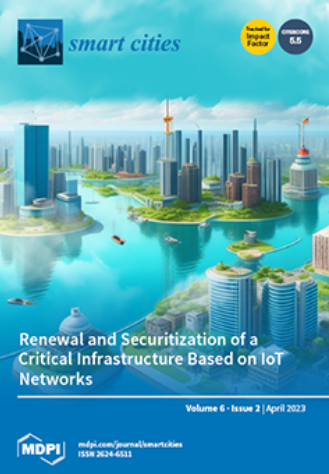Real-Time Recognition and Localization of Apples for Robotic Picking Based on Structural Light and Deep Learning
IF 5.5
Q1 ENGINEERING, ELECTRICAL & ELECTRONIC
引用次数: 0
Abstract
The apple is a delicious fruit with high nutritional value that is widely grown around the world. Apples are traditionally picked by hand, which is very inefficient. The development of advanced fruit-picking robots has great potential to replace manual labor. A major prerequisite for a robot to successfully pick fruits the accurate identification and positioning of the target fruit. The active laser vision systems based on structured algorithms can achieve higher recognition rates by quickly capturing the three-dimensional information of objects. This study proposes to combine the laser active vision system with the YOLOv5 neural network model to recognize and locate apples on trees. The method obtained accurate two-dimensional pixel coordinates, which, when combined with the active laser vision system, can be converted into three-dimensional world coordinates for apple recognition and positioning. On this basis, we built a picking robot platform equipped with this visual recognition system, and carried out a robot picking experiment. The experimental findings showcase the efficacy of the neural network recognition algorithm proposed in this study, which achieves a precision rate of 94%, an average precision mAP% of 92.86%, and a spatial localization accuracy of approximately 4 mm for the visual system. The implementation of this control method in simulated harvesting operations shows the promise of more precise and successful fruit positioning. In summary, the integration of the YOLOv5 neural network model with an active laser vision system presents a novel and effective approach for the accurate identification and positioning of apples. The achieved precision and spatial accuracy indicate the potential for enhanced fruit-harvesting operations, marking a significant step towards the automation of fruit-picking processes.基于结构光和深度学习的苹果实时识别与定位,用于机器人采摘
苹果是一种营养价值很高的美味水果,在世界各地广泛种植。苹果传统上是手工采摘的,效率很低。先进水果采摘机器人的发展具有取代人工劳动的巨大潜力。对目标水果的准确识别和定位是机器人成功采摘水果的重要前提。基于结构化算法的主动激光视觉系统能够快速捕获物体的三维信息,从而达到较高的识别率。本研究提出将激光主动视觉系统与YOLOv5神经网络模型相结合,实现对树上苹果的识别与定位。该方法获得了精确的二维像素坐标,结合主动激光视觉系统,可将其转换为三维世界坐标,用于苹果的识别和定位。在此基础上,我们搭建了配备该视觉识别系统的采摘机器人平台,并进行了机器人采摘实验。实验结果表明,本文提出的神经网络识别算法的精度达到94%,平均精度mAP%为92.86%,视觉系统的空间定位精度约为4 mm。这种控制方法在模拟采收操作中的实施显示了更精确和成功的水果定位的希望。综上所述,将YOLOv5神经网络模型与主动激光视觉系统相结合,为苹果的准确识别和定位提供了一种新颖有效的方法。所取得的精度和空间精度表明了增强水果采摘操作的潜力,标志着水果采摘过程自动化的重要一步。
本文章由计算机程序翻译,如有差异,请以英文原文为准。
求助全文
约1分钟内获得全文
求助全文
来源期刊

Smart Cities
Multiple-
CiteScore
11.20
自引率
6.20%
发文量
0
审稿时长
11 weeks
期刊介绍:
Smart Cities (ISSN 2624-6511) provides an advanced forum for the dissemination of information on the science and technology of smart cities, publishing reviews, regular research papers (articles) and communications in all areas of research concerning smart cities. Our aim is to encourage scientists to publish their experimental and theoretical results in as much detail as possible, with no restriction on the maximum length of the papers published so that all experimental results can be reproduced.
 求助内容:
求助内容: 应助结果提醒方式:
应助结果提醒方式:


